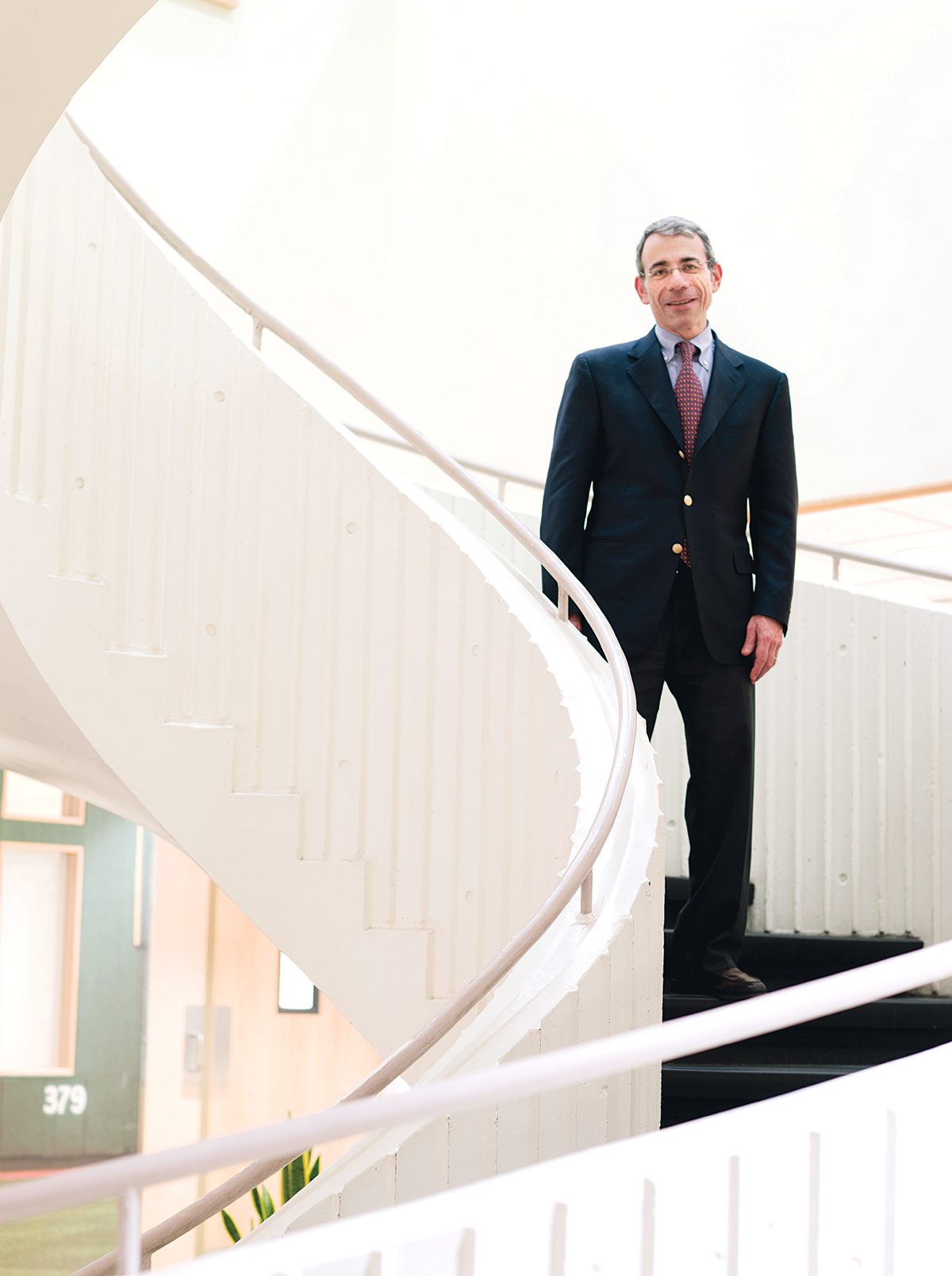Making the Rounds with Boston’s Top Docs

Photograph by Christopher Churchill
DR. ERIC P. WINER
Oncology
Hospital affiliation: Dana-Farber/Brigham & Women’s Cancer Center
Board certification: Internal medicine/medical oncology
Education: Yale School of Medicine
Years in practice: 20
Why did you become a breast cancer doctor? I’d had a family member with breast cancer, and had gotten interested in it early on. Also, as compelling as it was to care for and get to know people with other cancers, as a hematology-oncology fellow I was drawn more to breast cancer than anything else.
What are some of the biggest advances you’ve seen in your field? Probably the single most important change in the past decade is that we’ve come to recognize that breast cancer isn’t one disease; it’s a family of diseases. And that has made us focus on distinct subgroups of patients. We now know that different treatments—chemotherapy, for instance—can be enormously effective for some women and essentially ineffective for others.
A few years ago you signed on as chief scientific adviser to the advocacy group Susan G. Komen for the Cure. What do you hope to accomplish there? It’s a chance for me to provide more leadership in the breast cancer community, to help direct how a fairly substantial amount of money is spent on research. Since Komen touches a lot of people through its affiliates in the U.S. and around the globe, in a sense I can reach out to women with breast cancer far beyond Boston.
What do you find unique about being an oncologist? When somebody has cancer, it’s as if there’s a big door that’s opened and you walk into their life, their family. You really have a huge opportunity to help them and to get to know them.
What are the biggest challenges of the job? One is seeing patients do poorly—which, thankfully, is less common now because of improvements in treatment—and wishing you had more to offer that could be helpful.
What common misconceptions about breast cancer have you run into? I think many people may believe we’ve “solved” the problem, that women just go and get screenings, and that if they find something early they’re always cured. Screening helps, but it doesn’t always work, and some of the most difficult-to-treat cancers are hard to find through screening. So we still have a big challenge ahead of us.
What do you do to get away from work? Cycling. I don’t enjoy every minute on the bike, but I love the way it feels to have gone on a long ride where I pushed myself. It really clears my head.